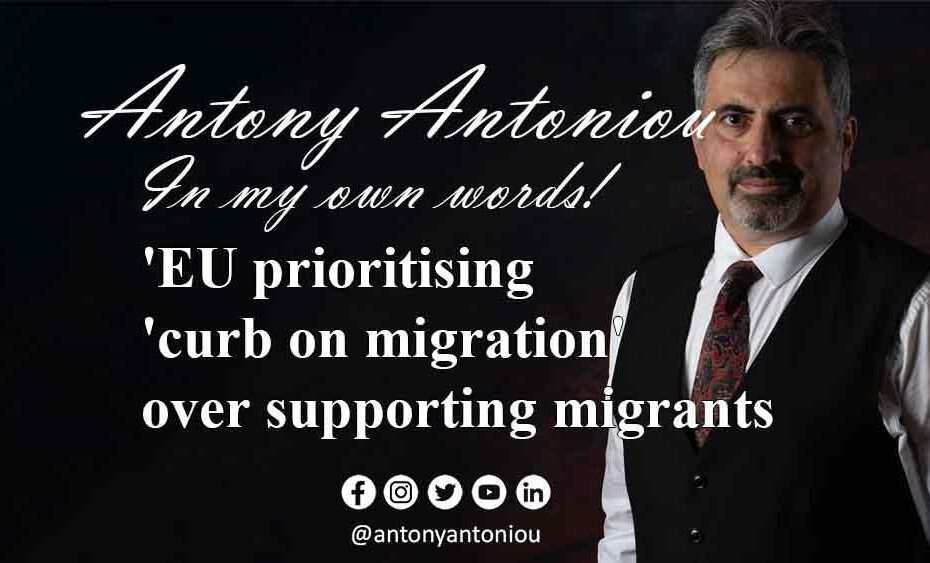‘EU prioritising ‘curb on migration’ over supporting migrants
Challenges and Controversies Surrounding European Migration Policies: A Closer Look
Introduction
In recent news, Tunisian authorities have made headlines by barring the entry of a European parliamentary delegation that was meant to conduct a fact-finding mission in Tunisia. The decision was based on multiple reservations about the visit. This move from Tunis comes nearly two months after the EU signed a memorandum of understanding with Tunisia to curb irregular migration. In this blog post, we’ll delve into the details of this development and discuss the broader issues surrounding European migration policies.
Tunisia’s Stance
Tunisia’s decision to deny entry to the European parliamentary delegation has raised eyebrows and sparked discussions about the state of migration and cooperation between the EU and North African countries. To shed light on this issue, Kami Lookers, the associate director at the Migration Policy Institute, shared insights during an interview on France 24.
Migration Surge to Lampedusa
One of the critical issues discussed during the interview was the significant uptick in arrivals on the Italian island of Lampedusa in the past two days, with approximately seven thousand people making the dangerous journey. Lookers pointed out that this surge can be attributed to a mix of factors.
Firstly, deteriorating conditions in Tunisia have prompted a series of boat departures, as individuals seek better opportunities and safety. The racist rhetoric of the Tunisian president over the past year has added to the challenges faced by migrants, especially those from sub-Saharan Africa.
Secondly, many people are leaving their countries due to a variety of reasons, including social and economic conditions, civil conflicts, and civil wars, such as the case of Burkina Faso. Climate change is also playing a role in displacing people, further contributing to the migration crisis.
Effectiveness of EU-Tunisia Agreements
The conversation then shifted to the effectiveness of agreements between the EU and countries like Tunisia in curbing irregular migration. Lookers acknowledged that these agreements can work in the short term if the primary goal is to decrease arrivals. However, recent events have shown that such agreements can have limitations.
The agreement negotiated in July with Tunisia was designed to provide financial support to the country in exchange for enhanced border control and reduced departures from its shores. The recent surge in arrivals on Lampedusa indicates that the agreement’s effectiveness is questionable. Moreover, there are concerns that the EU is prioritizing short-term goals of reducing arrivals over supporting Tunisia as a stable democracy and advocating for migrant rights within the country.
EU’s Approach: Combating Trafficking vs. Encouraging Legal Migration
Another significant aspect discussed in the interview was the EU’s approach to migration policies. Ursula von der Leyen, the president of the European Commission, recently emphasized the need to combat trafficking networks as a strategy to stop illegal migration. However, the interview raised a critical question: Is enough attention being given to encouraging legal migration?
Lookers pointed out that the EU has been struggling to reach a consensus among its member states regarding the reform of a common European asylum system. As a result, the focus has often shifted towards partnering with countries of origin to address the root causes of migration.
While this approach has some merit, it takes time to yield results, and as conditions improve in source countries, people may still aspire to seek better opportunities in Europe. To address the issue effectively, there must be a balance between discouraging irregular migration and creating legal pathways for migrants to come to Europe.
Conclusion
The ongoing challenges and controversies surrounding European migration policies highlight the complex nature of the issue. While agreements with countries like Tunisia may offer short-term solutions, they do not address the root causes of migration. Additionally, the EU’s struggle to unite its member states on migration policies and the need to balance combating irregular migration with promoting legal pathways for migrants remain significant challenges.
The recent developments in Tunisia and the surge in arrivals on Lampedusa underscore the need for a comprehensive and coordinated approach to migration in Europe. Achieving this will require not only political will but also a commitment to long-term solutions that prioritize the rights and well-being of migrants and the stability of the countries involved.

